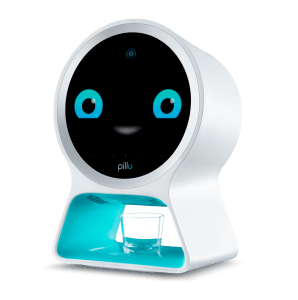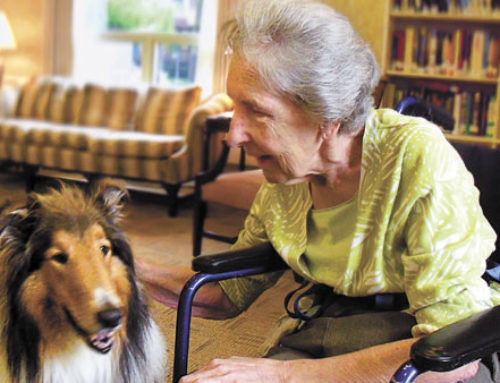A series identifying technology disruption in the ageless living space
I am part of the ‘caregiver generation.” Enjoying the twilight years of my fifties, yet acutely aware of the daily struggles of my parents, both in their eighties. Living less than two hours away, I am just far enough to prohibit a good response time with ever-increasing emergencies. Everyone has a story about an older family member navigating the old age maze and like a majority of people this age, my parents are both battling chronic illnesses. How do you take care of parents that live thousands of miles away and desire to not be ripped from their familiar social fabric and community?
Making decisions about where to live and having a financial plan in place for the 20-30 years of late life are the foundation of a good framework at my age. Preserving dignity and respecting the wishes of an elder who is compromised with a health condition is equally important in the framework but often pushed aside until it becomes an urgency. The number of devices and services coming “on line” in the tech world are astounding. Beware the digital divide between the boomer generation and our parents who are most often unaware of the options offered by technology. Whatever can be digitized has the power to disrupt and there are a few disrupters that enable the children of aging parents to sleep better at night.
Disruptors: Fintech
Security of data remains a high tipping point for the public to embrace all this sector has to offer. Signaling a growing issue with an aging demographic and dementia, the Financial Industry Regulatory Authority (FINRA) ruled in 2018, that securities firms must make reasonable efforts on the “front end” to obtain contact information for a trusted person of the family member.
1) Simply, capturing a loved one’s digital afterlife (passwords) becomes a challenge, much less working through a document paper trail. Fintech services developed for millennials are increasingly sought after by retiring baby boomers. Companies on the “security” platform include EverSafe, a service that detects financial exploitation and True Link Financial offering prepaid debit cards and monitoring services. Everplans, on-line archive service stores financial documents and wills for ease of secured and shared access. Whealthcare Planning is known in the industry as a knowledge generator with a platform that addresses some of the biggest challenges to aging
– when to turn over financial decision making, and the car keys, where to live safely and when to get assistance with health care decisions.
Disruptors: Security Tech
Each year falls result in more than 14,000 fatalities among seniors, ranking as the seventh leading cause of unintentional injury fatality. (2) If you are responsible for monitoring an elder in your family or network an array of tech options exist.
- Medical Guardian and Life Station (which works with Alexa) are popular names in this space. GreatCall is one of the more accessible having been recently purchased by Best Buy and may be available through your insurance provider. If the medical alert system is purchased through Best Buy a certified technician will install motion detection devices throughout the home – at the front door, refrigerator, stove, toilet and mattress to name a few key areas to monitor. Some of GreatCall’s services, using their well-known 5Star Urgent Response, require only a smart phone and you can even use your existing smart phone with their medical alert cell phone app. Through Real Time Location (RTL) tracking, the system offers activity monitoring, medication reminders and fall detection. The monthly service requires no land-line and offers 24-hour emergency support. With over 900,000 subscribers the option has modern appeal to the active adult generation as compared with other medical alert services focused on stand-alone equipment reserved only for medical alert use.
Disruptors: Clinical Platforms
- Startups looking to find a pain point in the clinical sector are beginning to capitalize on medication errors with automated pill delivery devices. One notable device utilizing facial recognition technology is Pillo, a tech appliance that provides medical support for the family dispensing multiple drugs on a personalized schedule. Full of personality, Pillo is small IPad size countertop device with a round face and big digital eyes that syncs with all wearables and smart phone devices via it’s app. Not only can it answer a question of calorie count on an apple, deliver the news and weather it also notifies the pharmacy when a drug requires a refill and alerts a caretaker (or remote family member) when a dosage has not been taken.
I recently saw Madeline Albright speak at an AARP global conference on the future of the workforce. Albright in her 82 years of wisdom explained death in these terms, “ when I die, not if I die.” Accepting the reality that we will all die is key and something tells me she has a plan in place. As our population ages this will become a more frequent conversation.
1. Vynca, is a platform for creating and documenting advanced care planning (ACP) directives with loved ones and family outside the urgency of a clinical setting. Costly, aggressive treatments are over used at the end of life. Statistics show a 59% percent cut in ICU admissions, and 37% cut in hospital admissions with documents in place to insure one’s personal journey is carried out. Since 2016 the Centers for Medicare and Medicaid Services CMS) allow providers to bill for ACP, but only 1% had taken advantage of the service. (3) Few want to die in an institutional setting. Seeking quality end of life conversation guidance and eliminating wasteful end of live medical procedures would be a gift to have in place for every adult child’s parents (and themselves). Vynca’s system electronically captures actionable ACP documentation across the care continuum that easily promotes seamless Health Electronic Record (HER) integration.
1) FINRA Available June 12, 2019.
https://www.finra.org/newsroom/2018/new-finra-rules-take-effect-protect-seniors-financial-exploitation
2) CDC (2007) http://www.cdc.gov/injury/ResearchAgenda/pdf/CDC_Injury_Research_Agenda-a.pdf
3) VYNCA Available June 16, 2019.
https://vyncahealth.com/leveraging-advance-care-planning-health-systems-response/





